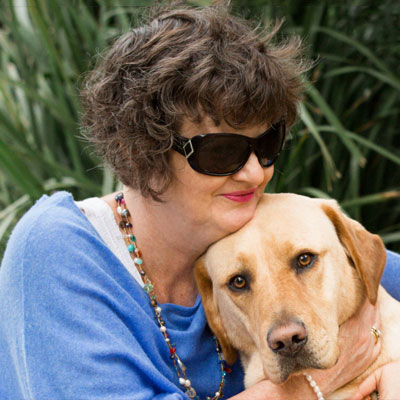Time to read: About 3 to 4 minutes

The CEO & Director of Aviation Safety, CASA
The CEO and Managing Director, Virgin Australia
I note that CASA appear to be changing rules in Australia later this year, giving individual airlines the choice to allow pets in the cabin. I understand that Virgin is undecided on their policy direction regarding this matter, while Qantas and Jetstar have ruled out the possibility of any change. I am writing to implore you to reconsider your decision.
I am a Guide Dog Handler and have travelled in cabins many times with both my current Guide Dog, Nixon and my former Seeing Eye Dog, Walter. I am also the Founder of TravelPaws (www.travelpaws.org), an international initiative which helps people living with disabilities, who rely on Assistance Dogs, to travel with more ease. We have members across all states in Australia, as well as 16 countries across the world.
Accredited Assistance Dogs are highly trained, and meet public access standards of excellence in behaviour and hygiene. We all rely on this for each others’ safety when accessing the community. Our dogs have been trained from puppyhood to cope with many varied situations, noises, and movement. When in the cabin, other passengers invariably comment that they were not even aware there was a dog on board, as our dogs will curl up quietly for the duration of the flight. They are trained to toilet on command so it would be highly unlikely you would ever experience a toileting issue with our dogs.
Paul Metcalf, Guide Dogs Manager (Guide Dogs Victoria) and former Chairman, International Guide Dog Federation and I are working together on this issue on which we both have significant concerns. Legitimate Assistance Dogs are being tangled up in the chaos of ‘pets’ on planes. The rights of a person with a legitimate Assistance Dog are being challenged by the rights of a person with a ‘pet’. There is no comparison.
Paul notes the extraordinary investment in the health and welfare, breeding and puppy development, training and assessment and client services that come together to form a legitimate Assistance Dog. ‘These ingredients, are prepared and provided in ways that consider the needs of the dog, their individual Handler and, importantly, the safety of the general public’.
Across the globe, there is a growing number of people who are presenting their pet dog as an ‘Assistance Dog’, on occasions simply to gain access to air travel or public spaces. ‘The behaviour of poorly trained and/or cared for dogs has significant potential to impact negatively upon the access rights of persons with legitimate Assistance Dogs’, Paul states.
This year, the U.S. Department of Transportation changed the definition of Service Dogs on their flights, as more and more people were bringing Emotional Support Animals (not categorised as an accredited Assistance Dog) that were causing staff and other passengers concern. I have linked the relevant information of this change here:
https://www.travelpaws.org/travel-rules/service-dogs-on-us-flights/
‘The Department found persuasive the information provided by airlines and other stakeholders indicating that emotional support animals, or animals being presented to the airline as emotional support animals, are responsible for a significant percentage of the incidents of animal misbehaviour onboard aircraft’.
Bring pets into the equation as you are now considering, I wonder how happy Australian passengers would be sitting next to a pet snake, rat, squirrel, monkey or parrot which is what happened in America. What about the spreading of diseases? If we talk only of pet dogs, you will potentially have to contend with biting, aggression, fights, barking, howling, distressed vomiting, hygiene issues, smell, toileting issues, heavy panting, unwillingness to sit still, and destroying of property. Not to mention, putting pets into a situation that they may not cope well with which isn’t fair on the animal. A substantial cost to all for the convenience of some!
But I digress. In this instance, I am specifically advocating for people living with disabilities who rely on accredited Assistance Dogs to access the community. Under your planned scenario, we would have to contend with these ‘untrained pets’ in a public space. For us, it is not a convenience to have our dog with us, but rather a requirement. They are part of us - our eyes, ears, safety and security. Whilst we usually have the choice to avoid places frequented by pets to ensure our safety and the safety of our dogs, we will not have this option in a cabin. If our Assistance Dogs are attacked or frazzled due to the presence of other unruly animals, the safety of our dog’s work upon disembarkation could be greatly impacted, compromising our safety as Handlers. Smaller dogs such as Jack Russels and Chihuahuas may meet the weight restrictions for cabin travel (as in America) but they are notoriously aggressive.
I implore you to reconsider your situation. We Assistance Dog Handlers have enjoyed the opportunity of accessing other communities through safe airline travel to date and I fear that this decision will substantially impinge on this. Should you proceed down this path, I will be actively encouraging Handlers to use other airlines.
I await your response to my concerns.
Kind regards,
Nina Smith
TravelPaws Founder & Director

Nina Smith is the Founder & Director of TravelPaws and Handler of Guide Dog, Nixon.
